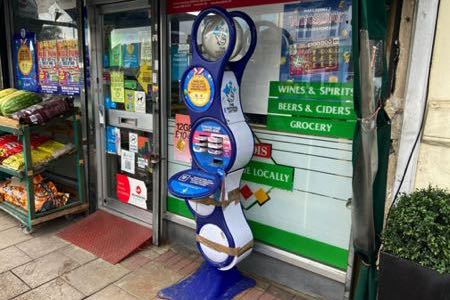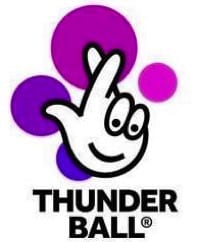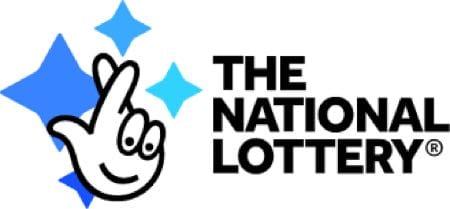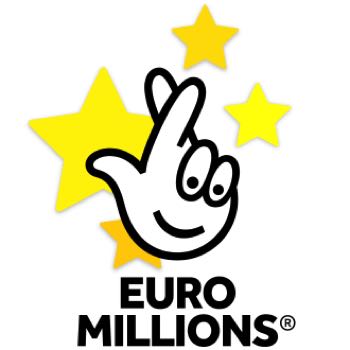 In the United Kingdom, the state lottery is known as the National Lottery. It was first launched in 1994 and the licence to operate it was awarded to Camelot. The first draw took place on the 19th of November that year, with Noel Edmunds hosting a televised draw, including the selection of the machine and the dropping of the balls. Things remained much the same for the following few years before Camelot introduced a second lottery draw, which was called Thunderball. This worked in slightly different way, including in the prizes offered.
In the United Kingdom, the state lottery is known as the National Lottery. It was first launched in 1994 and the licence to operate it was awarded to Camelot. The first draw took place on the 19th of November that year, with Noel Edmunds hosting a televised draw, including the selection of the machine and the dropping of the balls. Things remained much the same for the following few years before Camelot introduced a second lottery draw, which was called Thunderball. This worked in slightly different way, including in the prizes offered.
Over the years since, Camelot have launched several different lotteries, moving to update the ways in which people can win prizes. They have also done their best to ensure that the machines that make the draws are as modern as possible, updating them from the ones that were used back in 1994. The United Kingdom Gambling Commission wasn’t launched until 2007, at which point it took over the licensing of the National Lottery. Before that, the Lottery was regulated and licensed by the British government but it obviously wasn’t the UKGC that was responsible for it.
The History of the Lottery in England

In England, a statute was signed in 1698 that said that lotteries were illegal unless they had gained a specific authorisation by statute. The Bank of England was able to establish state lotteries, which were used to raise money for ‘good causes’ as well as in order to enable Britain to go to war. Henry Fielding once wrote, “A Lottery is a taxation Upon all the fools in creation; And Heav’n be prais’d It is easily rais’d.” Lotteries took place in the 18th century and, in many ways, were just as popular then as they are today with the populace.
Lottery tickets were expensive, which they needed to be in order to fund both the prizes on offer and what it was that they were launched for. As a result, people would often share the cost of a ticket and split any associated prize that was won. Four low-paid workers shared a ticket worth the equivalent of £1.2 million, for example, with the money going between a female servant, a servant of the Duke of Roxburgh, a vegetable carrier and a keeper of a fruit stall. The win explains why buying tickets was so popular.
Small lotteries were legalised by an Act in 1934, with further liberalisation coming in both 1956 and 1976. In 1988, a National Health Service Lottery was piloted, but a decision was taken to cancel it for legal reasons before the first draw was even made. It was clear that there was a clamber for a state-wide lottery in the United Kingdom, however, which was given the go-ahead by the government of John Major in 1993. Numerous companies applied for the licence to run it, with the licence eventually being awarded to Camelot.
The First Ever Lottery
On the 19th of November, 1994, Noel Edmunds hosted a one-hour special on television, instructing 18-year-old, Deborah Walsh, to ‘release the balls’ by pushing a big red button that would begin the process of the draw. The numbers that were used were between 1 and 49, with players asked to select six numbers that they thought would come up, giving them a chance to win all or part of the jackpot, which stood at £5,874,778. There were other prizes on offer for the six balls and bonus ball drawn, which were as follows:
| Number of Matching Balls | Total Prize Money | Number of Winners |
|---|---|---|
| Six | £5,874,778 | 7 |
| Five + Bonus Ball | £46,349 | 39 |
| 5 | £528 | 2,139 |
| 4 | £32 | 76,731 |
| 3 | £10 | 1,073,695 |
The seven ticket holders shared the jackpot, taking home £839,254 each.
The machine chosen for the draw was Guinevere, with set of balls A chosen to go into the machine. The average prize won was £19.09, with one in every 42.5 tickets winning a prize. For Camelot, there was likely to be a sense of disappointment that no one was made a millionaire from the first draw, given the extreme hype that surrounded the draw. The winning numbers, in the order the came out, were as follows:
- 30
- 03
- 05
- 44
- 14
- 22
- Bonus Ball: 10
In spite of the publicity received by the National Lottery for the first draw, there was £620,966 in unclaimed winnings, which was 2.82% of the total prize pool. The ability to claim the prize expired on the 18th of May, 1995 at 11pm, with that money then being added to the National Lottery Distribution Fund. At that point in the process, the National Lottery took place once a week, always on the Saturday night and always requiring players to pick six numbers, whilst the machine picked out six numbers plus a Bonus Ball.
A Wednesday Draw Is Added
For many, the launch of the National Lottery was enough. For others, there was always going to be a desire to see more lotteries take place on a regular basis, given the launch of the first one. As the years went by, the desire to have another draw added to the National Lottery’s stable grew louder. It was with this in mind that the company decided to add a Wednesday draw in February of 1997, using the same numbers from 1-49. That was a controversial decision, given the fact that many people wanted 51-99 to be used.
That was because it was felt that using the same numbers would encourage people to play the lottery on both occasions, fearing that ‘their’ numbers would come up in the second draw and see them miss out on millions. It was believed that the fairer thing to do would be to use a different set of numbers, so that people could pick or choose whether to play without fearing the numbers that the usually played coming up in the second draw and leaving them disappointed. The odds for the two draws remained 13,983,816 to 1.
Thunderball Is Launched
 If the launch of the Wednesday lottery was designed to assuage the desire of some to play the National Lottery more regularly, it didn’t stop Camelot from launching a new game two years later. The Thunderball game was launched on the 12th of June, 1999, being held only on Saturdays to begin with. It asked played to pick give numbers from 1 to 39, as well as one Thunderball, numbered between 1 and 14. The prizes on offer differed depending on whether people matched three main numbers or several numbers and the Thunderball. The payout table on the Thunderball when it was launched was as follows:
If the launch of the Wednesday lottery was designed to assuage the desire of some to play the National Lottery more regularly, it didn’t stop Camelot from launching a new game two years later. The Thunderball game was launched on the 12th of June, 1999, being held only on Saturdays to begin with. It asked played to pick give numbers from 1 to 39, as well as one Thunderball, numbered between 1 and 14. The prizes on offer differed depending on whether people matched three main numbers or several numbers and the Thunderball. The payout table on the Thunderball when it was launched was as follows:
| Matched | Odds | Prize |
|---|---|---|
| 1 Number + Thunderball | 1 in 33 | £5 |
| 2 Numbers + Thunderball | 1 in 107 | £10 |
| 3 Numbers | 1 in 74 | £10 |
| 3 Numbers + Thunderball | 1 in 960 | £20 |
| 4 Numbers | 1 in 2,067 | £100 |
| 4 Numbers + Thunderball | 1 in 26,866 | £250 |
| 5 Numbers | 1 in 299,661 | £5,000 |
| 5 Numbers + Thunderball | 1 in 3,895,584 | £250,000 |
In the years that followed, the Thunderball rules and odds changed, as did the prize money. It also started to take place on a Wednesday as well as a Saturday.
The National Lottery Main Draw Becomes Lotto
 In the May of 2002, a decision was taken to re-brand the National Lottery. This was designed in order to combat falling sales, with the main game being re-named to the Lotto. There had also been a game called the Lottery Extra, which was re-named to the Lotto Extra before being retired altogether in 2006 because of low sales. The collective games were still known as the National Lottery, with only the main game begin given a re-brand in order to re-capture the imagination of the British public over the National Lottery.
In the May of 2002, a decision was taken to re-brand the National Lottery. This was designed in order to combat falling sales, with the main game being re-named to the Lotto. There had also been a game called the Lottery Extra, which was re-named to the Lotto Extra before being retired altogether in 2006 because of low sales. The collective games were still known as the National Lottery, with only the main game begin given a re-brand in order to re-capture the imagination of the British public over the National Lottery.
EuroMillions Launched
 On the 7th of February, 2004, a new game was launched by Camelot called EuroMillions. This pan-European lottery initially saw the UK offering tickets along with France and Spain. In the months that followed, lotteries from Belgium, Portugal, Luxembourg, Ireland, Austria and Switzerland also joined. The first draw took place on the 13th of February 2004, with the draw taking place in Paris and seeing punters asked to pick five numbers plus two Lucky Stars. The odds of winning, as with the prizes, were much higher than the Lotto.
On the 7th of February, 2004, a new game was launched by Camelot called EuroMillions. This pan-European lottery initially saw the UK offering tickets along with France and Spain. In the months that followed, lotteries from Belgium, Portugal, Luxembourg, Ireland, Austria and Switzerland also joined. The first draw took place on the 13th of February 2004, with the draw taking place in Paris and seeing punters asked to pick five numbers plus two Lucky Stars. The odds of winning, as with the prizes, were much higher than the Lotto.
Initially, the draw took place on a Friday night. This changed on 2011, when another draw was added on a Tuesday. As with the National Lottery, the second draw used the same numbers as the first, though the number of Lucky Stars to choose from increased from 9 to 11. On the 24th of September, the number of Lucky Stars increased once again, this time shifting from 11 to 12. The chance of winning any prize whatsoever is 1 in 13, but the chance of winning the main jackpot is 1 in 1 in 139,838,160.
On the 26th of January, 2018, the EuroMillions HotPicks draw took place for the first time. It used the same five main numbers that were drawn in the EuroMillions, offering players the chance of winning between £10 and £1 million in prizes. Players decided how many numbers they were going to match, with the prize offered dependent on how many numbers they successfully matched. No numbers matched meant no prize being awarded. It is a game that is similar in its nature to the Lotto HotPicks, which goes alongside the main Lotto draw.
Set For Life
 There have been numerous games that have launched and then retired by the National Lottery over the years. Dream Number was launched in July 2006, for example, whilst the Daily Play took place for the first time more than three years before. Lotto Plus 5 launched in 2011 but was discontinued after the draw on the first of October 2013. One game that was launched and is still going at the time of writing is the Set For Life game, offering punters the chance to win £10,000 a month for a period of 30 years.
There have been numerous games that have launched and then retired by the National Lottery over the years. Dream Number was launched in July 2006, for example, whilst the Daily Play took place for the first time more than three years before. Lotto Plus 5 launched in 2011 but was discontinued after the draw on the first of October 2013. One game that was launched and is still going at the time of writing is the Set For Life game, offering punters the chance to win £10,000 a month for a period of 30 years.
Whilst the prize is not huge in comparison to the EuroMillions or the Lotto if there’s a rollover, the manner in which bettors are paid the £3.6 million is what makes it interesting. Players pick five main numbers between 1 and 47, as well as a ‘Life Ball’ from between 1 and 10. It was launched on the 18th of March, 2019, with other prizes being available depending on how many numbers a player manages to match. The lowest prize is £5, going all the way up to the top one of £10,000 per month for 30 years.